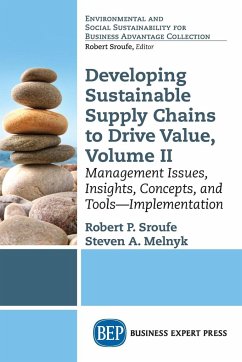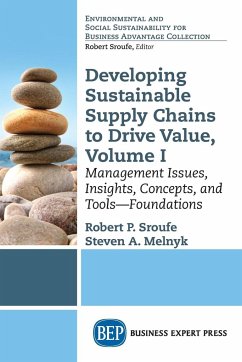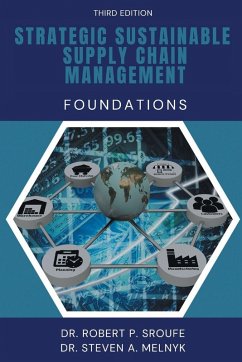Sustainability is changing and changing rapidly. It is becoming more widespread as companies and customers uncover its power, attractiveness, and sustainability, as well as receiving more attention in the press. Support for sustainability lies within new tools, frameworks, and approaches. The authors capture these and other developments in this second volume of Developing Sustainable Supply Chains. In the first volume, the authors assess major management opportunities; this second volume focuses on implementation; when combined the result is a complete, action-oriented treatment of sustainability. Written by two of the leading academic researchers in this area, this series introduces the reader, whether a student, manager, or experienced sustainability advocate, to the various tools, frameworks, and approaches that work.
Bitte wählen Sie Ihr Anliegen aus.
Rechnungen
Retourenschein anfordern
Bestellstatus
Storno








